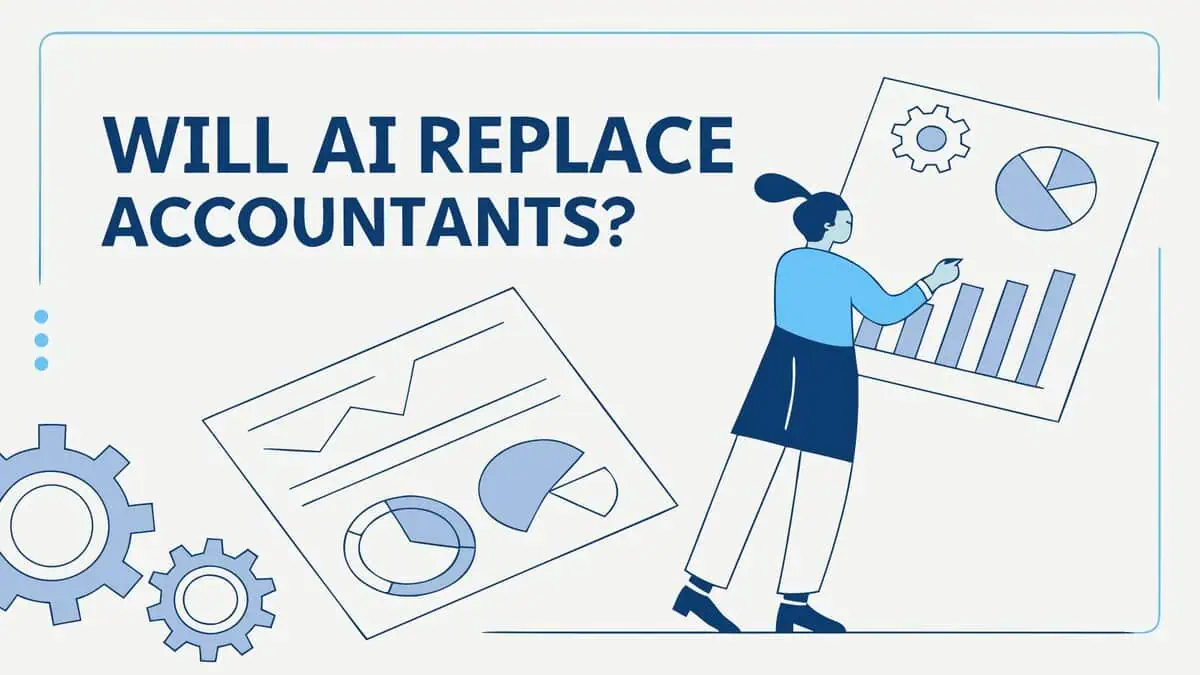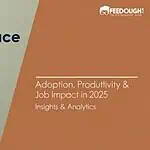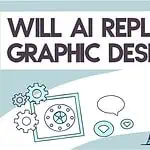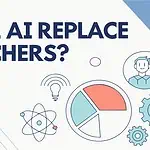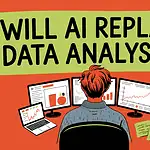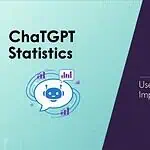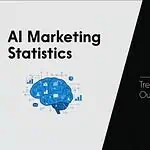You’ve probably seen the headlines. “Automation will eliminate millions of accounting jobs.” “ChatGPT can do your taxes now.”
And if you’re an accountant, or studying to become one, you’ve probably had that moment of panic where you wondered if you’re about to become obsolete.
Here’s what those headlines aren’t telling you: while some people freak out about AI replacing accountants, the Bureau of Labor Statistics just projected 72,800 new accounting jobs over the next decade. Meanwhile, 80% of accounting firms are planning to increase their AI investments this year.
The real story isn’t about replacement. It’s about transformation. And what’s actually happening in accounting firms right now is way more interesting.
Let’s look at what the data actually shows, not what makes for a good headline.
Current State of AI Adoption in Accounting
Here’s what’s actually happening in accounting firms right now. The numbers tell a story that’s more nuanced than the “AI is taking over” headlines suggest.
Adoption Rates Among Firms
According to Wolters Kluwer’s 2025 Future Ready Accountant Report, 80% of accounting firms plan to increase their AI investment this year. That sounds impressive until you see the next statistic: only 33% are actually using AI tools daily.
This gap becomes even clearer when you look at broader industry data. Intuit’s 2025 survey shows 64% of accountants plan to invest in AI technology, up from 57% in 2024. The enthusiasm is growing, but the execution? That’s where things get interesting.
What you’re seeing here is classic adoption behaviour. Firms know they need to modernise. They’re budgeting for it. But translating those plans into daily workflows is happening much more slowly.
Market Growth
The business case for AI in accounting is solid. Grand View Research reports that AI accounting solutions already hold a 67.2% revenue share in the broader accounting software market.
This tells you something important: the technology works. When firms do implement AI solutions, they’re seeing real returns. The market wouldn’t be this robust if the tools were just expensive toys.
Planning vs. Execution Gap
While 80% of firms plan to increase AI investment, only one-third are using these tools regularly. That’s not a sign of failure – it’s typical technology adoption.
Think about it this way: planning to use AI and actually integrating it into decades-old workflows are two different challenges. The firms that are succeeding aren’t necessarily the ones with the biggest budgets. They’re the ones figuring out how to make AI complement human expertise rather than replace it.
This gap between intention and implementation is actually good news for accountants. It means the transition is happening gradually, giving professionals time to adapt and upskill.
What Accounting Tasks Are Actually Being Automated Right Now
So what’s behind that 33% daily AI usage we mentioned? The truth is, it’s not robots taking over entire accounting departments. Instead, it’s smart automation handling the stuff that used to eat up hours of your day.
Routine, High-Volume Tasks Being Automated
The real AI wins are happening in the background work that nobody wants to do anyway. Invoice processing leads the pack here. Tools like Ramp can scan invoices, pull out vendor details, amounts, and dates, then categorise everything automatically. What used to take 10 minutes per invoice now happens in seconds.
Transaction categorisation is another big one. Your accounting software learns from past entries and starts predicting where new transactions should go. Data entry? AI can read receipts and bank statements faster than any human. Expense reconciliation that used to require matching dozens of receipts against credit card statements now happens with a few clicks.
Payroll processing is getting the AI treatment, too. Systems track hours, calculate deductions, and flag unusual patterns without human intervention.
Real-World AI Tools Currently Deployed
Here’s what firms are actually using: ChatGPT integrations for Gmail help draft client emails and explain complex tax concepts. Loom AI transcribes client meetings and pulls out action items. Digits offers AI-powered bookkeeping that catches discrepancies you might miss. Xbert handles tax research by scanning thousands of regulations in minutes. TaxDome automates client communication and document requests.
These aren’t futuristic concepts. They’re running in accounting offices right now, handling the repetitive work that used to burn through billable hours.
Employment Data: What the Bureau of Labor Statistics Actually Says
If AI is truly transforming tasks rather than eliminating jobs, what does the government’s employment data actually show? The answer might surprise you.
BLS Job Growth Projections (2024-2034)
The Bureau of Labor Statistics projects 72,800 new accounting positions over the next decade. That’s right – despite all the AI automation headlines, the government expects accounting jobs to grow, not shrink.
This projection factors in current technology trends, including AI adoption. The BLS doesn’t operate in a vacuum – their economists analyse automation impacts when creating these forecasts. Yet they still predict positive job growth.
What’s driving this growth? The same business complexity we mentioned earlier. More regulations, international operations, and financial transparency requirements mean companies need more accounting expertise, not less.
How BLS Incorporates AI Risk
The Bureau doesn’t ignore AI’s potential impact. According to their Monthly Labor Review analysis, they specifically examine occupations potentially susceptible to AI-related changes. Their conclusion? Employment trajectories remain uncertain, not declining.
Here’s what this means: BLS researchers acknowledge AI could affect accounting work but see no clear evidence pointing toward mass job displacement. They’re watching, studying, and adjusting projections as needed – but the data doesn’t support doom scenarios.
“Potentially Susceptible” Doesn’t Mean “Will Be Replaced”
The BLS research identifies accounting alongside legal and engineering roles as potentially susceptible to AI impacts. But here’s the key distinction – “susceptible” means “could be affected,” not “will disappear.”
Think about it this way: these are all high-skill professions requiring judgment, client interaction, and complex problem-solving. The fact that BLS groups them together suggests they see similar patterns – AI might change how the work gets done, but won’t eliminate the need for human professionals.
The government’s own employment experts, who have access to the most comprehensive labor data available, see growth ahead for accounting careers. That’s the reality behind the AI replacement fears.
How Entry-Level Accounting Roles Are Changing
Here’s what might surprise you: while AI is reshaping accounting, it’s actually creating more sophisticated roles for new graduates, not fewer opportunities. The BLS growth projections we just covered tell only part of the story. What’s happening at the entry level shows how dramatically the profession is evolving.
The PwC Training Shift
PwC just announced something that should grab every accounting student’s attention. By 2025, they expect junior accountants to manage AI systems within three years of starting work that senior managers handle today. Think about that for a second. Fresh graduates will oversee complex AI operations that previously required a decade of experience.
This isn’t about replacing people. It’s about elevating what entry-level means. Instead of spending years on manual data entry, new hires jump straight into strategic oversight. You’ll validate AI outputs, catch anomalies the system missed, and make judgment calls that algorithms can’t handle.
New Skill Demands
The skills gap is real, but it’s not what you think. Companies need people who understand both accounting principles and AI capabilities. That means learning prompt engineering, how to communicate with AI systems effectively. It means developing pattern recognition to spot when AI gets something wrong.
What’s telling is that 52% of accounting staff already use ChatGPT for personal tasks. The ones getting hired are those who can bridge that gap professionally. They know when to trust AI recommendations and when human judgment matters more.
Entry-Level Job Market Implications
Here’s the paradox that’s confusing everyone: AI might eliminate basic bookkeeping roles at small firms, but Big Four and mid-market companies are actually hiring more entry-level staff. They need people to manage AI operations, not just run them.
Small businesses might use AI to replace their part-time bookkeeper. But larger firms need someone who understands both the technology and the accounting principles behind it. That’s creating a divide, and opportunity, for people entering the field with the right preparation.
The entry-level job market isn’t shrinking. It’s splitting into higher-skilled, better-paid positions and basic roles that AI handles directly.
What Accountants and Firms Say They’re Worried About (Beyond Job Loss)
According to Karbon’s 2025 State of AI in Accounting Report, 70% of accounting professionals cite data security as their primary concern when evaluating AI tools – not job displacement.
That’s the real adoption gap we touched on earlier. Firms aren’t dragging their feet because they hate progress. They’re wrestling with legitimate operational challenges that affect their ability to serve clients responsibly.
Data Security and Client Privacy Lead the Pack
When you’re handling sensitive financial information for hundreds of clients, the “move fast and break things” approach doesn’t work. Accounting professionals are asking hard questions: Where does client data go when it’s processed by AI? How do we maintain GDPR or HIPAA compliance? What happens when an AI system makes a decision we can’t trace back through an audit trail?
The “black box” problem hits particularly hard in accounting. You might trust ChatGPT to draft an email, but would you trust it to categorise $2 million in expenses without being able to explain its reasoning? That’s the gap between consumer AI use and professional implementation.
Community Sentiment: Beyond the Fear Headlines
Browse through Reddit’s accounting communities and you’ll find practitioners frustrated with the replacement narrative. They’re not scared of losing their jobs – they’re annoyed that every conversation starts there instead of focusing on practical implementation challenges.
The real discussions centre on training gaps, client communication, and maintaining professional standards. One thread summed it up: “I’m tired of explaining why I can’t just plug client data into whatever AI tool went viral this week.”
The Generational Flip
Here’s what’s interesting: while established professionals worry about security, new graduates see AI adoption as a competitive advantage. The same Karbon report found that 76% of new accounting graduates view firms using AI as more attractive employers.
This creates an interesting dynamic. The people entering the field expect to work with AI tools, while the people running firms are still figuring out how to implement them safely.
What AI Can’t Replace
Here’s what you can’t teach a machine: how to look a small business owner in the eye when their cash flow projections don’t add up and help them navigate the emotional weight of potentially laying off employees. AI can crunch the numbers, but it can’t hold space for the human complexity that lives between those spreadsheet cells.
Judgment That Requires Experience and Ethics
AI excels at flagging anomalies – it’ll spot that unusual expense pattern or catch duplicate entries faster than any human. But here’s where it hits a wall: interpreting what those flags actually mean for your client’s business.
When the AI flags a series of large equipment purchases right before year-end, you’re the one who knows whether that’s aggressive tax planning or a sign the client is hiding declining revenues. You understand the difference because you’ve seen how this story plays out across dozens of clients over years of practice.
The same goes for strategic recommendations. AI might suggest a particular tax structure based on pure optimisation, but you’re the one who knows your client values simplicity over complexity, or that they’re planning to sell in two years and need different considerations entirely.
Client Relationships and Communication
Think about your most challenging client conversation this year. Maybe you had to explain why their brilliant tax-saving idea would actually trigger an audit, or walk them through why their pricing strategy was slowly killing their margins.
These conversations require reading between the lines, understanding personality types, and knowing when to push back versus when to find creative alternatives. When a client gets defensive about their record-keeping, you instinctively know whether they need encouragement or a firm reality check.
Plus, when your client gets that letter from the IRS, they’re not calling the AI. They’re calling you because they need someone who can translate bureaucratic language into human terms and advocate for their interests.
Complex Problem-Solving and Strategic Planning
Pattern recognition is AI’s superpower, but defining which patterns actually matter? That’s pure human territory. You might notice that your manufacturing clients who struggle with cash flow all seem to have similar inventory management issues – not because the data points to it, but because you understand the operational reality behind the numbers.
Strategic planning becomes even more human-dependent as businesses face unique challenges. When a family business needs succession planning that balances tax efficiency with family dynamics, you’re drawing on psychology, relationship management, and years of seeing what works and what destroys families.
Regulatory Advocacy and Representation
Here’s something AI will never do: sit across from an IRS agent and negotiate on your client’s behalf. When new regulations drop and everyone’s scrambling to understand the implications, you’re the one who has to interpret not just what the rules say, but how they’ll likely be enforced based on your understanding of regulatory patterns and agency priorities.
You know which hills are worth dying on and which arguments will resonate with different types of auditors. This isn’t just technical knowledge – it’s relationship management, persuasion, and strategic thinking all rolled into one.
What’s becoming clear is that AI isn’t making accountants obsolete. Instead, it’s pushing the profession upward into more advisory, strategic, and relationship-focused roles. The routine work that AI handles well was never the most valuable part of what you do anyway.
The Verdict
So, will AI replace accountants? The evidence is clear: absolutely not. AI is transforming accounting, but it’s creating a more sophisticated profession, not eliminating it.
Think about what we’ve seen. The Bureau of Labor Statistics projects 72,800 new accounting jobs over the next decade. That’s not the prediction of a dying field. Companies are investing heavily in AI, yet they’re still struggling to find qualified accountants who can work alongside these tools.
Here’s what this means for you. If you’re in accounting or considering the field, focus on developing skills that complement AI. Master data analysis, strategic thinking, and client advisory services. Learn to manage AI systems rather than compete with them.
The accountants thriving in this new era aren’t the ones avoiding AI – they’re the ones embracing it. They use automation to handle routine tasks while they focus on higher-value work that requires human judgment, ethics, and relationship building.
AI isn’t your replacement. It’s your productivity booster. The question isn’t whether you’ll have a job – it’s whether you’ll adapt to make that job more valuable than ever.
A startup consultant, digital marketer, traveller, and philomath. Aashish has worked with over 20 startups and successfully helped them ideate, raise money, and succeed. When not working, he can be found hiking, camping, and stargazing.
